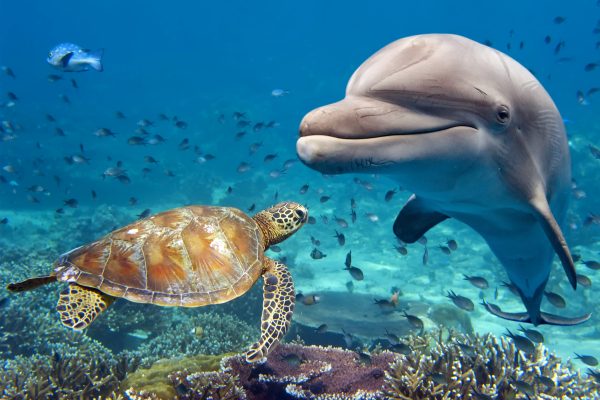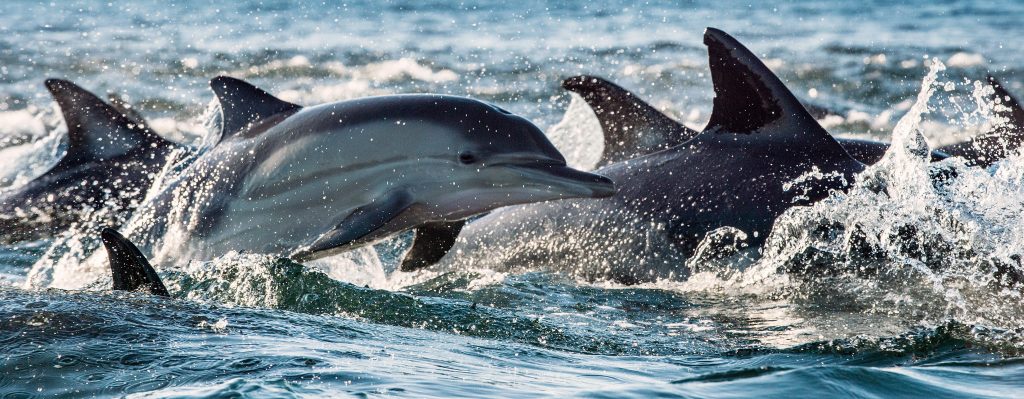
18 Aug Rising Sea Temperatures: A Threat to Dolphins and Marine Life
The world’s oceans are undergoing significant changes due to climate change, with rising sea temperatures emerging as a major concern. While this warming trend affects various marine life forms, dolphins, being highly intelligent and social creatures, are particularly vulnerable. In this article, we will explore the impact of rising sea temperatures on dolphins and other marine species, shedding light on the importance of conservation efforts to protect these majestic creatures and the delicate ecosystems they inhabit.
1. The Impact on Dolphins: Dolphins are warm-blooded mammals that rely on stable and specific temperature ranges for survival. As sea temperatures increase, dolphins face several challenges, including altered migration patterns, changes in prey availability, and disruptions in their reproductive cycles. Warmer waters may drive their prey to seek cooler areas, causing dolphins to migrate longer distances in search of food, leading to increased stress and reduced reproductive success.
2. Behavioral Changes: Dolphins are highly adaptable, and they may attempt to cope with rising temperatures by altering their behavior. This could include seeking out deeper, cooler waters or changing their feeding habits to adapt to shifting prey populations. While some species might adapt successfully, others may struggle to adjust, affecting their survival and overall population dynamics.
3. Ocean Acidification: Apart from warming, rising sea temperatures contribute to ocean acidification, a process caused by increased absorption of carbon dioxide (CO2) by seawater. This change in pH levels can harm vital marine organisms, including the small fish and plankton that form the base of the food chain. With reduced prey abundance, dolphins and other predators higher up in the food chain face a diminished food supply, impacting their health and survival.
4. Impact on Marine Biodiversity: Rising sea temperatures do not solely affect dolphins; numerous marine species also face grave threats. Coral reefs, essential ecosystems that support a rich diversity of marine life, are susceptible to coral bleaching, which occurs when the symbiotic relationship between coral polyps and algae breaks down due to stress from high temperatures. As a result, coral reefs lose their vibrant colors and become more susceptible to disease, affecting fish populations and marine biodiversity as a whole.
5. Conservation Efforts: Recognizing the urgency of the situation, conservationists and marine biologists are working tirelessly to protect dolphins and other marine life. Implementing marine protected areas (MPAs) can offer sanctuary to dolphins and provide a safe haven for them to feed and breed. Additionally, reducing greenhouse gas emissions through collective efforts, such as using renewable energy sources and sustainable practices, will contribute significantly to curbing further sea temperature rise.
6. Individual Contribution: Every individual can play a crucial role in safeguarding dolphins and marine life. Adopting eco-friendly habits such as reducing plastic usage, supporting sustainable seafood choices, and participating in beach cleanups can help reduce stress on marine ecosystems. Educating others about the impacts of climate change and its effects on marine life can foster collective action toward a healthier planet.

The rising sea temperatures brought on by climate change present a formidable challenge to the well-being of dolphins and other marine life. As responsible inhabitants of this planet, it is essential that we take action to mitigate the effects of global warming and preserve the delicate ecosystems that sustain these magnificent creatures. By working together and making conscious choices, we can ensure a thriving future for dolphins and all marine life, fostering a harmonious coexistence between humans and the natural world. Let us embark on this journey of preservation and conservation for the sake of our oceans and the magnificent life they sustain.

Sorry, the comment form is closed at this time.